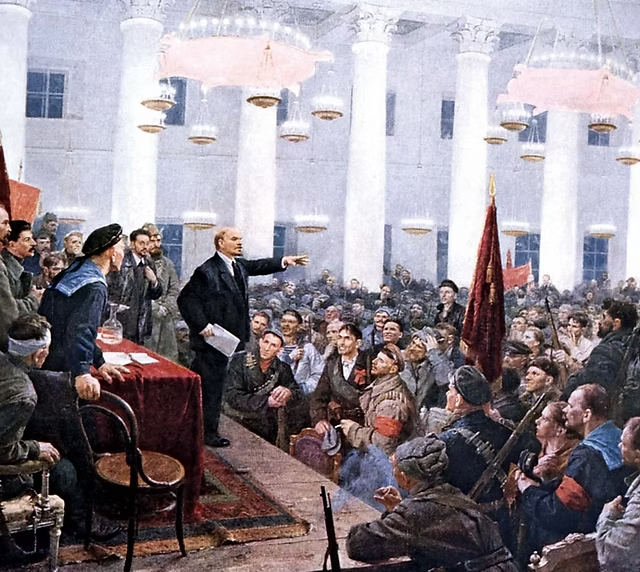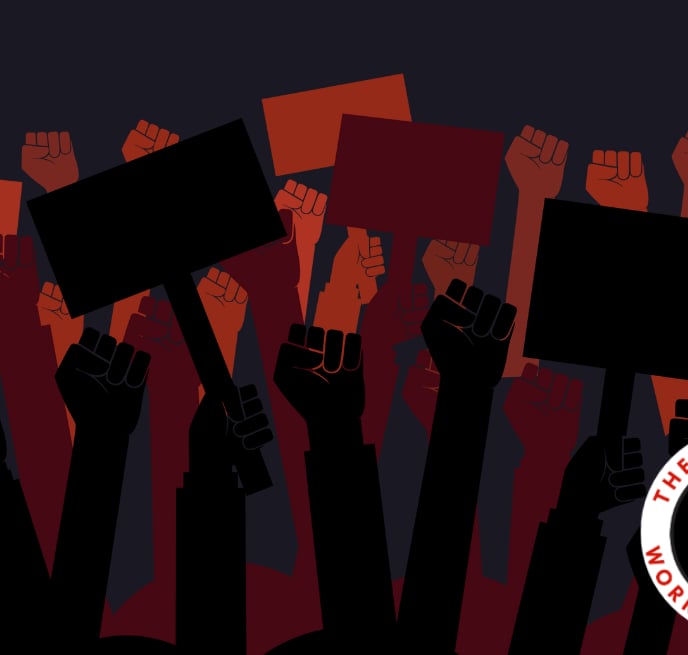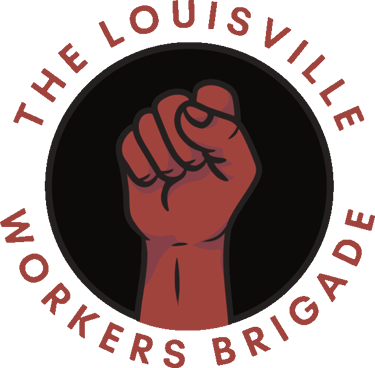What prevails in today's society is a struggle between the working "proletariat" class - who own nothing but their capacity to labor - and the capitalist "bourgeoisie" class, which owns the labor of and violently exploits the former. The movement of the working class to liberate themself from this relationship must be realized in the form of an international, socialist revolution.
The most important task of the working class today is to become politically independent from the bourgeoisie, by acting in the interests of their class. The International Workers Brigade is dedicated to educating and organizing the working class from all countries and identities into class-unions and worker councils, guided by the historical principles and tasks which we call the invariant and unitary party programme.


A
b
o
u
t
Brigade
The
Class Party
Programme
Under the present social regime of capital, the conflict between the productive forces and the relations of production develops at an ever increasing rate, giving rise to antithetical interests and to the class struggle between the proletariat and the ruling bourgeoisie.
Production relations today are protected by the power of the bourgeois State: whatever the form of representative system and employment of elective democratic, the bourgeois State remains the organ for the defence of the interests of the capitalist class.
The proletariat can neither smash nor modify the system of capitalist relations of production which exploits it without violently overthrowing the bourgeois power.
The indispensable organ of the revolutionary struggle of the proletariat is the class party. The Communist Party, which contains the most advanced and resolute part of the proletariat, unifies the efforts of the laboring masses and transforms their struggles for particular group interests and immediate gains into the general struggle for the revolutionary emancipation of the proletariat. The party is responsible for propagating the revolutionary theory amongst the masses, for organizing the material means of action, and for leading the working class through the course of its struggles by ensuring the historical continuity and the international unity of the movement.
After overthrowing the capitalist power, the proletariat must completely destroy the old State apparatus in order to organize itself as dominant class and install its own dictatorship: that is to say, it will deny all rights to the bourgeois class and individuals within it for as long as they socially survive, and will found the organs of the new regime on the producing class alone. The Communist Party, whose programmatic characteristic lies in this fundamental achievement, exclusively and only represents organizes and directs the proletarian dictatorship.
Only by means of force will the proletarian State be able to systematically intervene in the social economy, and adopt those measures with which the collective management of production and distribution will take the place of the capitalist system.
This transformation of the economy and consequently of the whole of social life will gradually eliminate the necessity for the political State, whose machinery will gradually give way to the rational administration of human activities.
During the first half of the twentieth century capitalist economy has seen the introduction of monopolistic trusts amongst the employers. Attempts have been made to control and manage production and exchange by centralized planning, right up to State management of whole sectors of production. In the political field, there has been an increase in the strength of the police and military arms of the State and in government totalitarianism. None of the latter are new types of social organization of a transitional nature between capitalism and socialism, and neither are they revived forms of pre-bourgeois political systems. They are instead particular forms of a more and more direct and exclusive management of power and the State by the most advanced forces of capital.
The imperialist wars have shown that the crisis of capitalist disintegration is inevitable by decisively inaugurating a phase in which its expansion no longer signifies a continual growth in the productive forces, but rather an alternation of accumulation and destruction. These wars have been the cause of a series of profound crises in the workers’ international organizations, with the dominant classes having managed to impose military and national solidarity on them by getting them to line up on one or other of the war-fronts. There is only one historically viable alternative that can be posed to this situation and that is the rekindling of class struggle within nations, leading to the civil war of the working masses to overthrow the power of bourgeois States everywhere, along with all their international coalitions. The indispensable condition for this lies in the reconstitution of the International Communist Party as an autonomous force independent of any existing political or military power.
The apparatus of the proletarian State, insofar as it is a means and arm of struggle in a transitional period between two social systems, does not derive its organizational strength from any existing constitutional canons or schemas that aim to represent all classes. The most complete historical example of a proletarian State up to the present is the Soviets (workers’ councils) during the October revolution of 1917, when the working class armed itself under the leadership of the Bolshevik party, when the conquest of power was accomplished by totalitarian means and the Constituent Assembly dispersed, and when the struggle took place to repel the attacks by foreign bourgeois governments, and stamp out the internal rebellion of the vanquished classes, of the middle classes and opportunist parties – the inevitable allies of the counter-revolution at decisive moments.
The full accomplishment of socialism is inconceivable within the borders of one country alone and the socialist transformation cannot be effected without failures and momentary setbacks. The defence of the proletarian regime against the ever present dangers of degeneration can be ensured only if the running of the proletarian State is continually coordinated with the international struggle of the working class of each country against its own bourgeoisie, State and military apparatus; there can be no let up in this struggle even in wartime. The necessary co-ordination can be ensured only if the World Communist Party controls the politics and program of the States where the working class has attained power.




